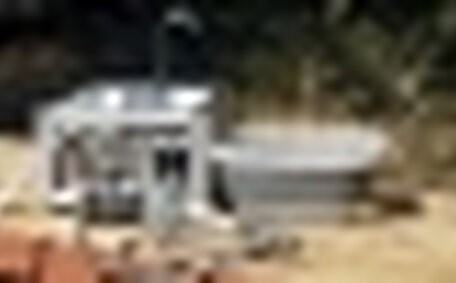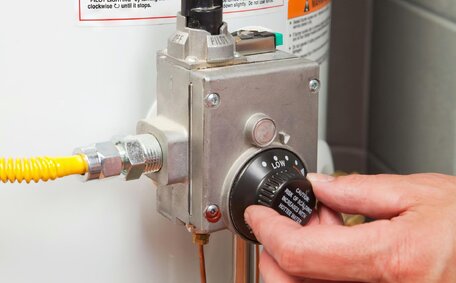Introduction to Gas Safety for Rental Properties
Landlords face essential legal obligations to ensure all gas fixtures and appliances in their properties are secure and receive annual inspections by registered engineers. Neglecting this duty imperils tenants, may harm the landlord-tenant rapport, and could lead to legal confrontations.
It’s imperative that landlords have a thorough understanding of gas safety regulations, transparently communicate tenants’ rights to a reliable gas supply, and ensure all gas equipment is serviced to meet stringent safety requirements.
Understanding Legal Obligations and Responsibilities
In NSW, the Residential Tenancies Act 1987 stipulates specific legal responsibilities for landlords regarding gas safety.
This Act extends to fittings such as pipes, flues, and meters. Landlords must comply with the following gas safety mandates under the Act:
- Ensure all gas installation equipment is assessed for safety and maintained in working order, with assessments conducted annually.
- Arrange prompt repairs or replacements following a safety check, guaranteeing gas installations are maintained adequately.
- Maintain a gas safety record for five years as proof of continual upkeep for all appliances.
- Provide tenants a copy of the certificate within 28 days of the check
Overlooking these duties compromises your compliance with legal standards, so adherence is non-negotiable. Penalties stemming from failure to comply include fines up to $2200, legal action, or even issuance of a section 21 notice to end tenancy. By staying up-to-date on service and scheduling regular gas safety inspections, you keep your properties safe and reduce risks dramatically. Your tenants have a right to a safe rental property, ensuring the property meets minimum standards for habitability.
Critically, neglect of gas equipment maintenance can precipitate gas leaks, explosions, or deadly carbon monoxide poisoning.
Conducting Regular Gas Appliance Safety Checks
Landlords must schedule inspections for all gas appliances, devices and fittings within their properties to ensure safety and regulatory adherence. These checks should include ensuring smoke alarms are in place and conducted by a qualified gas safe registered engineer to examine the safe functioning of items in their rental properties like:
- Gas heaters
- Stoves/ovens
- Hot water systems
- Gas pipes and metres
During the inspection, the licensed gas fitter will assess for gas leaks, check ventilation is adequate, confirm working pilot lights, test hot cold water pressure levels, and ensure gas fittings and components are up to electrical safety check standards. They can also make minor adjustments or flag issues needing repair, like faulty parts that pose risks.
Conducting yearly gas safety inspections is a legal mandate that safeguards tenant wellbeing. For frequently used equipment or upon tenant concerns, consider interim safety evaluations. Semi-annual inspections can offer added protection against gas-related risks.
Post-inspection, securely store the gas safety documents for compliance evidence. Furnish tenants with a copy within 28 days to confirm adherence to legal obligations.
Using Qualified and Certified Professionals
It’s mandatory for landlords to ensure gas safety inspections and related repairs in their properties are executed by credentialed professionals. NSW regulations mandate residential gas installations be conducted by registered, licensed technicians to ensure proper safety.
Technicians registered to perform gas work are licensed, with their expertise proven through comprehensive training, assessments and adherence to strict gas safety regulations. They possess up-to-date technical knowledge on legal safety standards and best practice methods for servicing various types of gas systems. Using qualified registered professionals will also ensure any work on gas and electrical appliances meets all regulations and quality benchmarks.
Such certification also underpins accountability and dependability if future faults arise from substandard servicing. Licensed gas fitters are liable for the safety and regulatory conformity of appliances they work on, which underscores the critical nature of scheduled reviews.
Attempting repairs or servicing through non-certified handymen or builders severely compromises safety. It also leaves you non-compliant with legal gas fitting requirements. So when it comes to compliance, you’ll need to rigorously verify licences and registration status when hiring gas technicians. Attempting repairs or servicing through non-certified handymen or builders severely compromises safety.
Maintaining Records and Providing Certificates
Maintain meticulous gas safety check logs for a minimum of two years to comply with consumer affairs statutes.
This includes retaining copies of current gas safety certificates issued, which contain details of the servicing technician, date of inspection, appliances and equipment checked, any defects, and confirmation that installations meet legal safety standards.
These certificates and records are essential for legal assurance and prove your compliance with gas safety obligations. They also provide important documentation should any incidents emerge. Maintain digital or physical copies of these documents, such as condition reports, in a secure filing system for use in insurance claims or legal matters.
Beyond maintaining their records and ensuring property safety, landlords are tasked with providing pertinent documentation to tenants. Upon their move-in, supply new residents with the prevailing gas safety certificate. When safety inspections or fixes take place during a tenancy, existing occupants must receive the updated certificate within a 28-day period post-completion.
Disseminating these records informs tenants about the secure operation and condition of the landlord’s gas equipment in their abode. It also notifies them of their own duty around proper usage and monitoring. Ultimately, upholding standards around record keeping and information sharing promotes transparency, accountability and enhanced protections for all parties under residential tenancy laws.
Recognizing and Responding to Gas Leaks
The peril of gas leaks necessitates a swift reaction. As a landlord, you should educate tenants on potential signs of a leak like:
- A 'rotten eggs’ smell
- Visible damage to appliances or pipework
- Flames or bubbles around appliances
- Increased condensation inside windows
- Yellow rather than blue flames from appliances
- Pilot lights frequently blowing out
If a gas leak is suspected, tenants should know how to turn off gas immediately and then should:
- Open doors and windows immediately to ventilate
- Extinguish all naked flames
- Shut off the main gas valve if safe to reach
- Evacuate the property
- Call the gas emergency line on 132 771
- Notify you as the landlord promptly
Being landlord responsible, you must respond urgently by sending qualified technicians to carry out inspections and repairs of any leaks, check all appliances and installations, and issue an updated gas safety certificate. Keep the tenant and the property manager informed throughout and provide the new certificate once repairs are carried out.
Proactively maintaining appliances, particularly in the main living areas, can significantly reduce the risk of leaks. But through prompt, collaborative response when issues emerge, the worst outcomes can be prevented despite inherent risks with gas supply.
Risks and Consequences of Non-Compliance
Failing to meet legal gas safety obligations can result in landlords facing substantial penalties under NSW residential tenancy laws. Key implications include:
- Fines up to $2200 for breaches like not arranging annual safety checks or providing certificates to tenants
- Further legal action through tribunals or courts
- Voiding of landlord insurance policies if cover conditions around gas compliance are not met
However, more concerning than financial or legal punishment are the grave health safety risks created for tenants in properties with non-compliant or faulty gas equipment.
Gas leaks, carbon monoxide emissions from faulty appliances, or poorly maintained systems causing fires or explosions can be deadly. Studies indicate that approximately 20 Australians perish each year from carbon monoxide poisoning, frequently associated with gas heaters.
As a landlord, negligent inaction exposing tenants to such hazards contravenes responsibilities around supplying safe rental premises. It demonstrates gross disregard for your legal duty of care toward those residing on your property.
Upholding gas safety compliance does entail moderate time and financial outlay arranging annual servicing by energy efficient and qualified technicians, but it’s crucial to keeping gas electricity appliances safe. However, this is in no way comparable to the human costs of laxity in maintaining safe systems. It is also far more affordable than dealing with incidents and liabilities after the fact due to non-compliance.
Best Practices for Tenant and Property Safety
As a landlord, upholding safety around gas supply involves proactive, ongoing measures alongside meeting bare minimum compliance obligations. Best practises for protecting tenants and properties include:
- Arranging annual gas safety checks by qualified professionals - this step rules out gas hazards and is a legal requirement
- Conducting more frequent 6 monthly inspections on high-use appliances or older systems at higher risk of issues emerging
- Promptly addressing any repairs or faults identified during safety checks using licenced gas technicians
- Maintaining detailed digital records of all safety checks and certification
- Educating tenants on signs of potential gas leaks and appropriate emergency response steps
- Supplying tenants with current gas safety certificates before move-in and within 28 days of any new checks
- Installing a carbon monoxide detector in the main living area as an additional safeguard in properties with gas supply
- Ensuring any gas isolation valves are visibly marked and reachable in emergency situations
- Being responsive and communicative with tenants around all gas safety matters
While the safety of gas infrastructure is a collective responsibility, the onus remains with landlords as property owners to spearhead proactive risk minimisation as soon as possible. For uncompromised quality in professional gas safety checks and certified repairs, contact our qualified team at Riverwood Plumbing on 1300 349 338.






